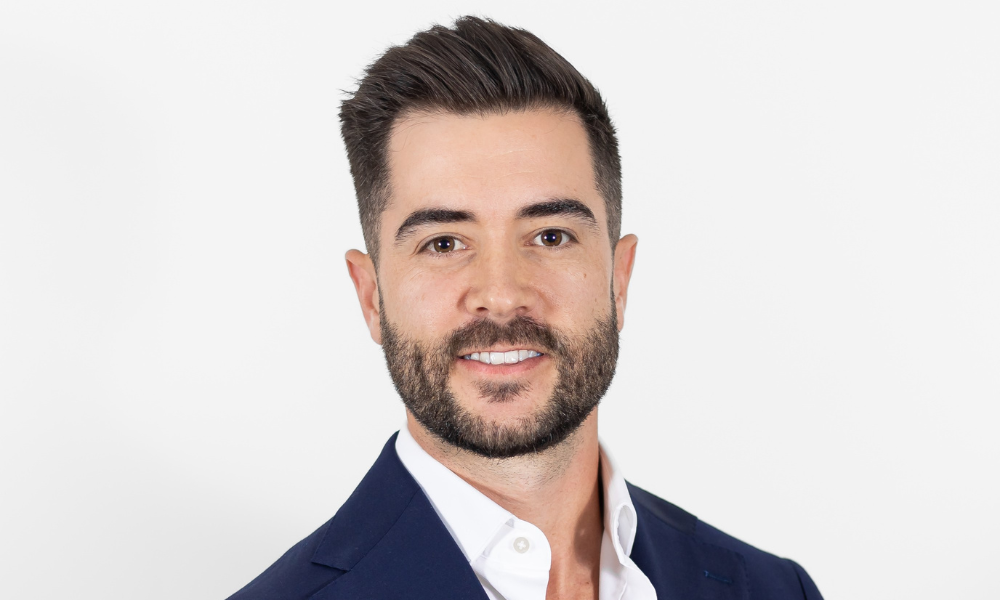'If you do not service your clients, someone else will'

Matt Spears (pictured) understands the importance of having a diversified offering.
As the managing director of Sydney-based Evoke Capital, his profile belies his status as a sole broker, having racked up numerous industry awards, including a securing a spot in MPA’s 100 Best Mortgage Brokers of 2024.
Sitting down with MPA, Spears spoke at length about how critical commercial lending has been to his successes.
He discussed how, in an increasingly saturated market, it makes simple business sense to meet all of your clients’ needs under one roof. As he put it: “If you do not service your clients, someone else will.”
His comments reflect the broader trend of diversification in an industry that is at pains to keep pace with shifting borrower demands. The data speaks for itself.
More brokers writing commercial loans
Per the Mortgage and Finance Association (MFAA)’s latest Industry Intelligence Service report, the number of mortgage brokers writing at least one commercial loan through their aggregator’s panel increased by more than 24% on a year-on-year basis to 30 September 2024.
The data is based on brokers who use their aggregator’s panel, so those writing loans directly with lenders are not captured in these figures.
All states saw growth in the number of brokers participating in commercial lending, although South Australia saw the most growth, followed by Western Australia and Queensland.
The value of commercial loans settled by mortgage brokers hit a new high of nearly $23 billion, representing a 31.2% year-on-year increase.
The total commercial loan book at the end of the MFAA’s reporting period was just shy of $86 billion.
Read more: Mortgage broker conversion rates continue to fall
While each broker has their own strategy for tapping commercial finance opportunities, Spears’ strategy sounds decidedly simple yet effective.
It typically involves leveraging equity from residential properties and using profits from businesses to invest in commercial property.
“We’re seeing more of our resi investor clients selling down their residential portfolios and reallocating into commercial assets,” said Spears. “It comes down to yield considerations and the diminishing advantages of negative gearing on residential investments.
“Investors are after higher net returns – commercial property offers that, with the majority of holding costs associated typically paid by the tenant."
Whereas a $2 million residential property can yield something in the ballpark of 2-3% gross, commercial can deliver 6-7% net, since outgoings are typically paid by the tenant, Spears said.
This net return, coupled with lower ongoing costs, makes commercial property an appealing endgame for seasoned investors.
The next step is to deleverage – either by selling residential assets or the business itself – to reduce commercial debt and consolidate passive income streams.
But who does this approach suit?
Experienced investors to the fore
“This strategy works best for more experienced investors who have built up equity in residential or are business owners generating substantial cash,” said Spears.
Business owners can benefit from this strategy as it de-risks their business from being the sole cashflow generator. “Using business profits as deposits on commercial property enables them to be significantly cash flow positive from day one,” Spears said.
Evoke Capital is seeing particularly high deal flow in industrial property, thanks to the size and value-add potential of these sites. Queensland and Western Australia are particularly popular for these deals, according to Spears.
The strategy has evidently paid dividends.
As a sole broker, Spears’ volume targets are nothing to sneeze at. He and his support team are expected to write $250 million this financial year, followed by $350 million the following financial year.
But not all brokers are in Spears’ position. Commercial lending might not be as complex as many assume, it is still a specialised area with plenty of risks and pitfalls.
“My advice to all is that if you don’t know how to do a commercial deal, refer it to someone who does, but ensure that you stay across it to learn how it's done,” said Spears. “Don’t hold onto deals for comm(ission)s and ultimately fumble, that’s a short sighted view. Partner up with an expert and ensure you learn how they approach the transaction to grow your skill set to better serve your clients.”
For younger brokers just getting into the game, he recommends teaming up with an experienced broker in the field and learning how to secure the best client outcomes – even if this means agreeing to a commission split.
“There are many seasoned brokers out there who give their time generously to those who want to learn, and there are many businesses built on partnering with residential brokers to serve clients commercially,” Spears said.



